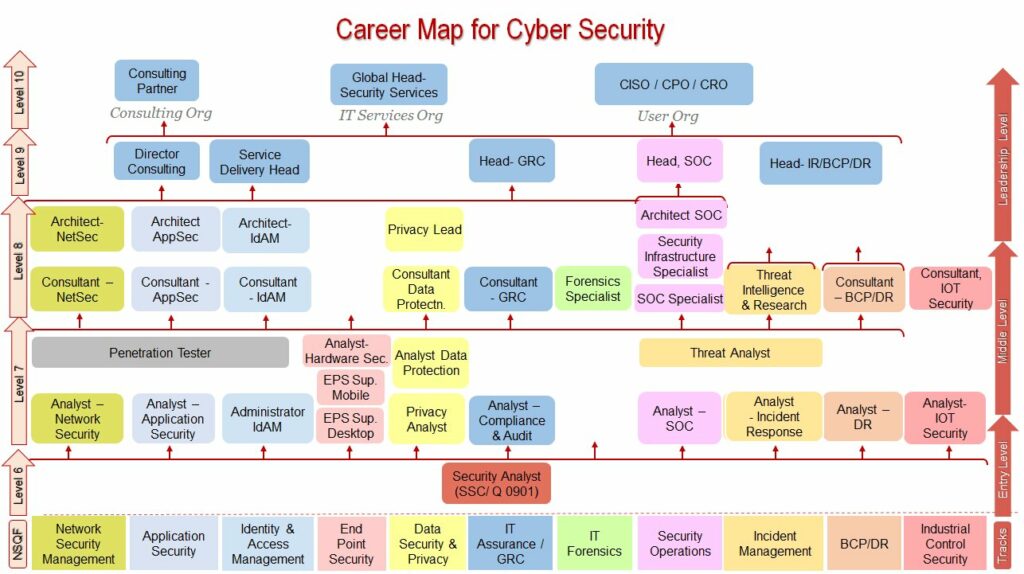Certified SOC Analyst Training Program
About This Course
NextGenEud SOC Analyst Training Institute in Pune:
Welcome to NextGenEud’s SOC Analyst Training Program, your gateway to a rewarding career in the dynamic field of cybersecurity. Our intensive and hands-on training program is designed to equip participants with the knowledge and skills required to excel as Security Operations Center (SOC) Analysts.
Why Choose NextGenEud for SOC Analyst Training?
At NextGenEud, we understand the critical importance of SOC Analysts in safeguarding organizations from cyber threats. Our comprehensive training program ensures that you gain a deep understanding of cybersecurity practices, tools, and techniques. Here’s what sets us apart:
Eligibility:
This program is ideal for individuals with a background in IT, networking, or computer science, who possess a keen interest in cybersecurity.
However, if you are a non-technical graduate, we recommend starting with our Hardware & Networking foundational course before enrolling in our Cyber Security courses. This foundational course will provide you with the necessary technical knowledge to excel in cybersecurity.
Highlights:
Experienced Instructors:
Learn from seasoned cybersecurity professionals with hands-on experience in SOC environments. Our instructors bring real-world insights and expertise to the classroom, helping you bridge the gap between theory and practice.
Practical Labs:
Apply theoretical concepts in real-world scenarios through hands-on lab exercises. Our practical labs are designed to simulate actual SOC operations, allowing you to develop crucial skills and confidence in your abilities.
Industry-Relevant Tools:
Gain proficiency in using industry-standard tools such as SIEM platforms, intrusion detection systems, and more. We ensure that you’re well-prepared to work with the tools commonly used in SOC environments.
Real Case Studies:
Analyze actual cyber incidents and breaches to understand mitigation strategies. Learning from real-world examples equips you with the ability to respond effectively to emerging threats.
Certification:
Receive a recognized NextGenEud certification upon successful completion of the program. Our certification is a testament to your expertise and commitment to cybersecurity excellence.

Duration
2 Months
This Course Include
- Experienced Instructors
- Practical Labs
- Real Case Studies
- Industry-Relevant Tools
Enquire Now
Course Content:
Our SOC Analyst Training Program is typically conducted over 8 weeks, offering a balanced mix of instructor-led sessions, practical labs, and assessments. This structure ensures that you have ample opportunities to reinforce your learning and build practical skills.
Module 1 of our SOC Analyst Training covers fundamental topics essential for a strong cybersecurity foundation:
01. Operating System Basics:
- Kernel and System Components
- File Systems and Storage Management
- Memory and Process and Thread Management
- Boot Process and Initialization
- System Utilities and Management
02. Network Basics:
- Network Topologies and Architectures
- Network Protocols and Communication
- Network Devices and Infrastructure
- Network Management and Monitoring
- Understanding TCP/IP Protocols
- Network Traffic Analysis Techniques
03. Cybersecurity Fundamentals:
- Overview of Cybersecurity Landscape
- Security Principles and Concepts
- Network Security Fundamentals
- AAA and CIA
04. Cybersecurity Threats and Attacks:
- Malware Types and Attacks
- Phishing and Social Engineering Attacks
- Insider Threats
- Advanced Persistent Threats (APTs)
- Zero-Day Exploits and Vulnerabilities
- Cybersecurity Best Practices and Risk Mitigation Strategies
05. Network Security:
- Network Security Architecture and Layers
- Network Encryption and VPNs
- Network Monitoring and Intrusion Detection
- Firewalls and Access Control
- Network Incident Response and Forensics
- Security Information and Event Management (SIEM) Platforms
06. Endpoint Security:
- Endpoint Security Threats and Attack Vectors
- Endpoint Detection and Response (EDR)
- Endpoint Security Best Practices
- Mobile Endpoint Security
- Cloud Endpoint Security
- Endpoint Security Management and Monitoring
07. Threat Intelligence:
- Threat Intelligence Platforms (TIPs)
- Sources of Threat Intelligence, Collection, and Analysis
- Cyber Threat Actors and APTs
- MITRE ATT&CK (Adversarial Tactics, Techniques, and Common Knowledge)
- Threat Intelligence Sharing and Collaboration
08. Vulnerability Assessment:
- Types of Vulnerability Assessments
- Vulnerability Assessment Methodologies
- Vulnerability Scanning Tools
- Web Application Vulnerability Assessment
- Network Vulnerability Assessment
- Credential and Privilege Assessment
- Reporting and Risk Management
- Vulnerability Management Lifecycle
Module 2 focuses on advanced topics and hands-on skills essential for SOC Analysts:
01. Security Operations Center (SOC) Operations:
- Introduction to Security Operations Centers (SOCs)
- Role and Importance of a SOC Analyst
- Key Skills and Qualifications
- Security Monitoring and Event Analysis
- Incident Detection and Response
- Threat Intelligence and Hunting
02. SIEM Tool Architecture and Installation:
- SIEM Tool Components and Architecture
- SIEM Data Sources and Integration
- SIEM Installation and Deployment Planning
- SIEM Configuration
- SIEM Data Normalization and Enrichment
- Event Correlation and Rule Creation
- Alerting and Incident Management
03. On boarding Endpoint:
- Preparing Endpoints for Onboarding
- Endpoint Data Collection Methods
- Endpoint Log Format and Normalization
- Endpoint Security Policies
- Endpoint Onboarding Challenges and Solutions
- Endpoint Data Validation and Quality Assurance
- Integrating Endpoint Data with SIEM Analytics
- Endpoint Offboarding and Decommissioning
04. Raw Log Analysis:
- Data Collection and Ingestion
- Log Storage and Retention
- Log Search and Query Techniques
- Threat Hunting with Raw Logs
- Real-time Alerting and Incident Response
- Visualizing Log Data
05. Alert Analysis:
- Types of SIEM Alerts
- Alert Management and Prioritization
- Alert Enrichment and Data Correlation
- Incident Validation and Remediation
- SIEM Alert Reporting and Communication
- Continuous Improvement and Alert Optimization
06. SIEM Use Cases:
- SIEM for Threat Detection and Incident Response
- User Activity Monitoring and Insider Threat Detection
- Network Security and Perimeter Defense
- SIEM for Cloud Security
- Insider Data Theft and Data Loss Prevention
- SIEM for Advanced Persistent Threat (APT) Detection
07. Incident Detection and Response:
- Preparing and Conducting IDR
- Incident Triage and Escalation
- Threat Hunting and Investigation
- Collaborative Incident Response
- Analysis and Lessons Learned
08. Best Practices and Advanced Techniques:
- Optimization and Performance Tuning
- Security Techniques Efficiency
- Basic
Conclusion:
In today’s digital landscape, the need for skilled SOC Analysts has never been greater. With cyber threats becoming more sophisticated and prevalent, organizations require vigilant and capable professionals to protect their digital assets. NextGenEud’s SOC Analyst Training Program in India offers a holistic approach to cybersecurity training, ensuring that graduates are well-prepared to take on the challenges of the modern cybersecurity landscape. Join us on this transformative journey towards securing the digital realm.
Industry Collaboration & Placements
+91 - 83297 03277
enquiry@nextgenedu.in
